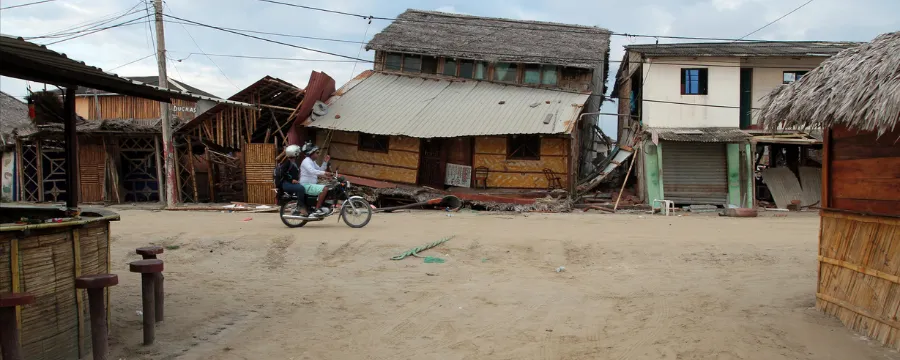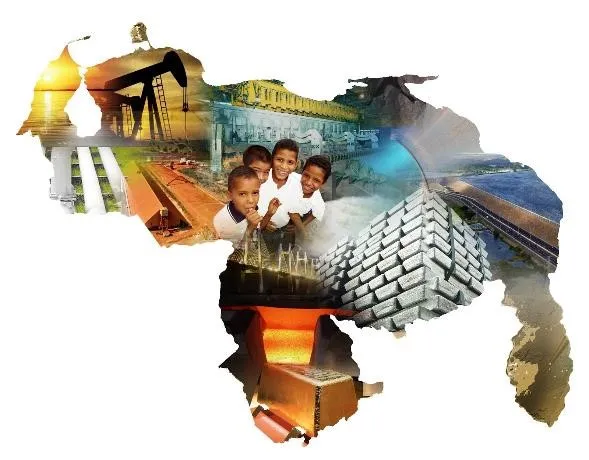What's up friends of Leo finance? I hope you are all doing great, here again Lino Calderin, 6th semester economics student in Venezuela (economics here is something contradictory hahahaha) and passionate about cryptocurrencies.
You may ask, what is this topic about? Well, as I still do not know much about cryptocurrency analysis, I want to share with you my point of view on how they work for the advancement of a country in underdevelopment, in this case Venezuela, where I live, and also how these economies are linked to those of developed countries. Without further ado, I leave you with the first part of this article that I have prepared for you with much affection.
Economic underdevelopment is basically the inability of a nation to sustainably provide a state of socioeconomic and cultural well-being to its inhabitants.

But this is only the consequences of acts of corruption, lack of freedoms, debt of countries, wars, control over raw materials. However, this could be improved by encouraging savings and investment, creating a favorable climate for entrepreneurship, opening up to international trade and improving education.
But... what are the modes of articulation between developed and dependent economies?
In order to understand this topic in general, it is necessary to know how each economy is defined. In this sense, we understand that an underdeveloped or dependent economy is one that has a low level of gross domestic product (GDP) per capita and presents structural impediments to sustained economic growth. Thus, it shows, for example, high levels of inequality and corruption.
On the other hand, there is what we could consider as the antonym of the dependent economy, which is the developed economy, that is one with a high level of economic activity characterized by a high per capita income or gross domestic product (GDP) per capita, high level of industrialization, developed infrastructure, technological progress, a relatively high rank in human development, health and education.
Underdeveloped countries have historically faced great difficulties in accumulating sufficient resources of their own, with a clear inability to generate the level of accumulation necessary to guarantee expanded reproduction and overcome economic backwardness. It is therefore essential for them to have a stable supply of funds from abroad to complement the mobilization of domestic resources to finance development. This can be explained precisely by the deformation of the economic structures of these countries, as a consequence of the interaction of internal and external phenomena within the framework of a historical process of international relations.
Structural deformation can be defined as the unequal and unbalanced development that occurs at all levels within underdeveloped economies. This deformation is characterized by a high concentration of exports, insufficient development of productive forces and a marked concentration of external linkages.
But the relations between these countries for their progress or maintenance is nothing new, since the origin of underdevelopment is to be found in the very logic of foreign political-economic domination relations, which imposed certain economic structures on these countries during centuries of colonial and neocolonial domination. From a Marxist perspective, this phenomenon cannot be considered as a natural stage in the socio-economic evolution of all nations or as something fortuitous, but has its origin in a particular historical context. It arises dialectically from the process of development of capitalism and the relations of exploitation that characterize it.

In fact, these historical relations between countries have led to unequal development, both between nations and within the economies of the so-called "third world". In the case of underdeveloped countries, autonomous unequal development, characterized by the tendency to favor certain sectors or economic regions, is combined with induced unequal development, which comes from outside and slows economic development.
As underdeveloped countries, it is vital for these nations to count on increasing flows of foreign flows in any form: investment, debt, aid, among others. Strictly speaking, the fundamental function of this financing should be to promote development in the recipient economies through the mobilization of material and technical resources.
Their use could provide them with greater opportunities to invest in infrastructure, facilitate trade financing and promote a cycle of sustained domestic capital flows, economic growth and poverty reduction. However, the characteristics and trends of international capital flows today show a totally contradictory character in terms of their contribution to the development of recipient countries. Far from contributing to development, in many cases they compromise the future possibilities of growth and welfare of these nations, perpetuating underdevelopment.
In general, there are many ways in which these two types of countries can have unions, to understand it better we can mention an example, such as China and Venezuela, the first, a country that every day its economic and social ascent is greater, with an industrial sector by far productive and a fairly efficient workforce, The second is a dependent country and far from being a developed country, with an industrial sector in precarious situations, so it depends on imports, but with an incalculable natural capital that unfortunately is not well managed. In this sense, both countries have "strategic agreements" for the benefit of both, Venezuela sells oil and other minerals to China and obtains in its favor medical supplies, means of transportation, among others.

This is the same for all dependent economies, although there are some of them that do not have natural capital to offer and depend on other types of strategies, but always depending on imports from other countries.
However, these treaties are more profound in their application, because there is always, or almost always, money involved, i.e., it is not a simple barter of one service for another, i.e., Venezuela, for example, sells oil, and with that money buys medical supplies.
Sometimes this money is not well used, for example Argentina, which not long ago received a large amount of money and unfortunately a large part of these resources were used to finance the public deficit instead of investing in capital goods and thus increasing the country's production capacity. Another very simple case could be that of many African countries where a large part of the international aid from developed countries falls into the hands of the dictators of this nation and little or nothing is destined to the development of these countries.

TO BE CONTINUED...
En la siguiente parte estaré hablando mas en definitiva de como benefician las criptos a los países subdesarrollados o dependientes.
See you soon!

